October 27, 2022
Brendan Coughlin, Head of Consumer Banking at Citizens: Moving From Transactional to Advisory-based Banking
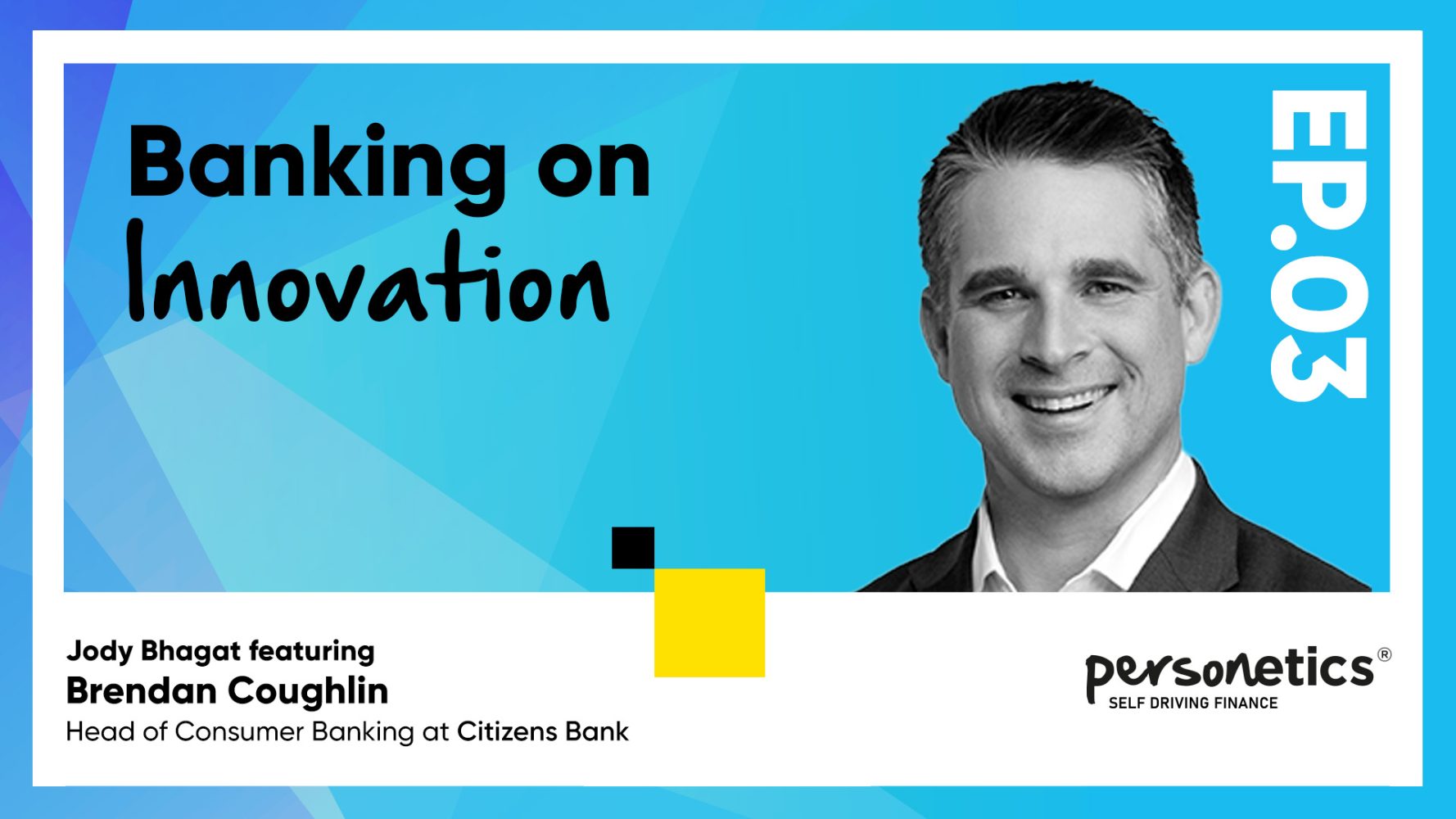
By Jody Bhagat, President of Americas
I’m delighted to feature Brendan Coughlin, as our guest on the Banking on Innovation podcast.
In his 18-year career at Citizens, which has $192 billion in assets and over 1,200 branches, he has driven disproportionate market share growth in every position he held, from President of education finance, to auto finance, to consumer lending to now in his capacity as Head of Consumer Banking. Such continued outsized market growth could only be accomplished with a relentless pursuit of customer-centric innovation. I was interested to hear from Brendan about how innovation could be pursued in different contexts, as well as the lessons for regional banks.
In light of the economic environment and rapid shift to digital behavior, Brendan stated that banks face a once-in-a-generation moment of transformation.
“In the past, banks didn’t have to be that well-differentiated because 90% of decision-making was down to your physical convenience. Now you have to be differentiated – and it’s hard for 5,000 banks in the US to all be uniquely differentiated.”
To do so successfully, banks not only need to develop their products and services but scale differentiated marketing and tech rapidly, giving an advantage to banks that have the ability to invest for growth.
Building a fintech within a mature bank /// How regional banks can be disruptive
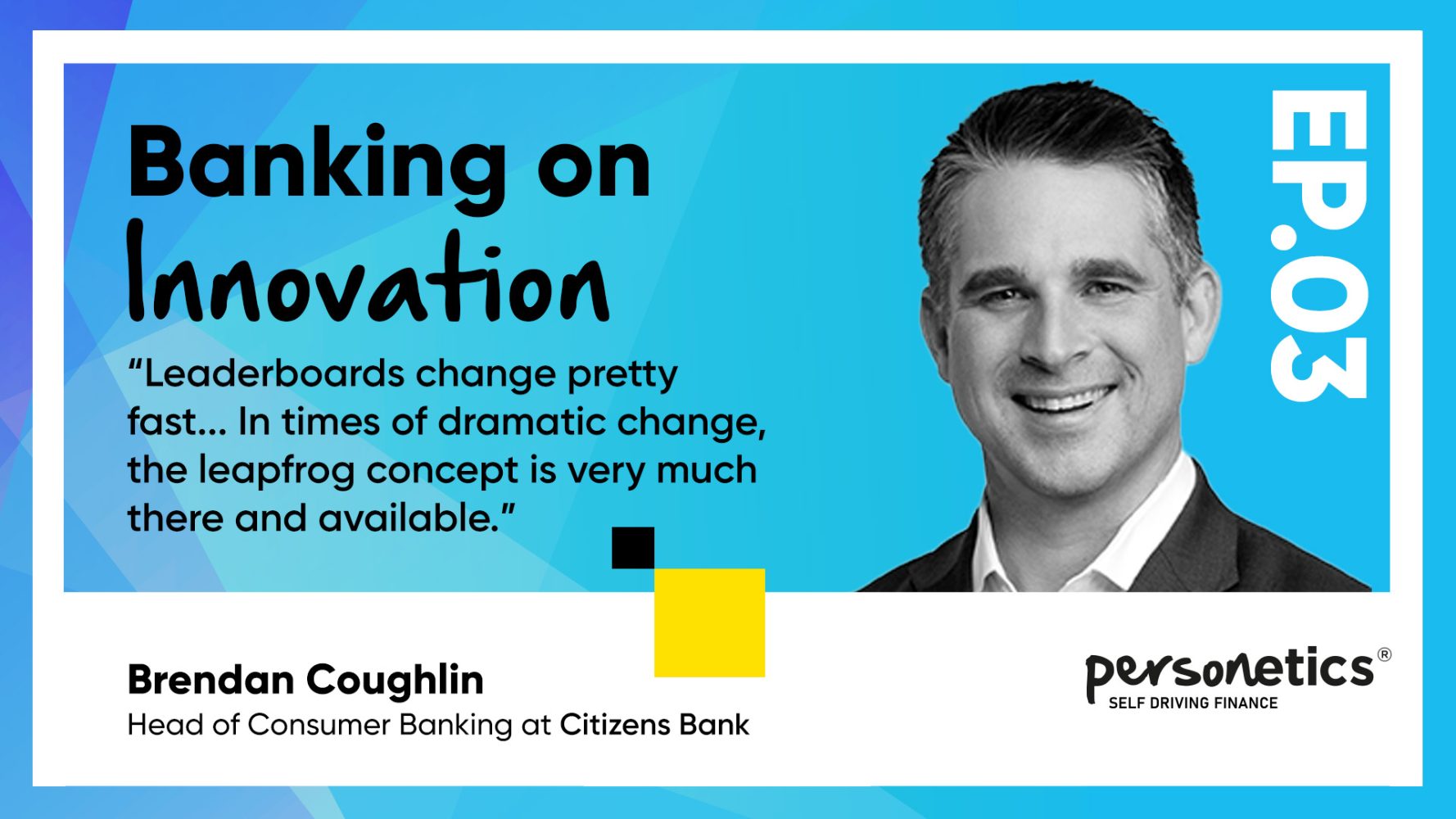
So how can regional banks compete?
Brendan’s career at Citizens shows that innovation does not just come from obvious places like challenger banks. Regional banks are in an excellent position to disrupt and focus on under-served aspects of the market.
In the early 2010s, for example, he started a student loan business and developed and launched a Buy Now, Pay Later product with Apple – both for Citizens. Although they were launched from within a big bank, these were “entrepreneurial start-ups. You’re starting with a whiteboard and saying, ‘what problem are we trying to solve for the consumer?’”
The result went beyond disruption to financial services, also changing the way the federal government thought about its lending programs and how the telecom industry distributed phones.
Later, he moved into more traditional roles, running Citizens’ home equity business and auto business, which were already mature. Yet here, too he created growth, by applying better analytics to drive up profitability and digitizing the business to improve customer experience.
Banks can also be every bit as disruptive as fintechs.
“When you look at some of the fintechs that had a lot of glitz and glamor over the last five years… in some cases, it’s clear that while they have good technology and a good way to think about the customer experience, they haven’t matched that up with a way to make money long-term,” says Brendan. “Where banks really have an advantage is deep liquidity. What they didn’t have was that speed to develop and the technology orientation and, in some cases, that obsession around customer experience. If banks can do that, they’re exceptionally well [positioned to win]…
“That’s what we’re trying to do at Citizens – be a fintech within the structure of a mature, well-run, well-capitalized bank.”
We are in an exciting period of transition for the industry, one which will result in greater separation between leaders and laggards.
“This is the moment in the market where the banks are going to separate from each other. Which ones can lean into that hybrid mindset, and which retrench back to the traditional mindset? That will be what separates the winners from the losers”, said Brendan.
You can access new podcast episodes here: Spotify, Apple, Google.
Digital acceleration is about financial confidence – not just technology
As for the “winning formula”, one part has not changed: “Giving strong advice, trying to be the customer’s trusted financial partner through life’s journey. Those sentiments still carry the day. They just get delivered in a very different way.”
Given the digital acceleration, banks must become less transactional and more advisory-based. But advice can be delivered through a banker in-branch, a financial check up, or a financial planning service, as well as through digital channels.
“My view on digital acceleration is that it’s not just about technology and displacement of bricks-and-mortar. It’s about financial confidence and empowerment for customers.”
This comes by providing daily insights on their financial situation, helping customers be “close to their money.”
“It’s all about financial confidence-building and empowerment… And the banks that are doing it well aren’t just waiting for customers to look,” says Brendan. “They’re actually nudging them along the way. The partnership between Citizens and your organization [Personetics] has really helped us scale some of that, to say ‘Okay, how do we do a better job of taking this treasure trove of information and getting customers this information, [distilling it into a helpful nugget of advice?]”
Those nuggets, he adds, don’t have to focus on big-ticket transactions. Customers’ financial confidence rises when you help them with day-to-day issues, like avoiding an overdraft fee.
“That’s a very transactional piece of advice, but it’s important.”
Getting personalization right is another opportunity for banks to differentiate: “Pick and choose the types of customers that you inherently serve well and lean in hard. Customers want different things – young professionals want different things than pre-retirees. Most banks, maybe putting aside the large money-center banks, need to find that focus.”
The affluent need daily financial insights, too
It would be a mistake, Brendan adds, to assume that there are deep differences between the personalization required by customers living at the margin versus the affluent mass.
“You’d be shocked at how many folks who have an enormous amount of money with the bank tell us they feel intimidated by managing their money. A lot of capabilities that we put in that seem basic – helping to manage your money, helping to avoid overdraft, giving alerts when cash is low – are extraordinarily relevant even up to our high net worth segment.”
To deliver these personalized experiences proactively, banks must build the capability to translate financial data into real insights, delivered digitally. But they must also help team members use these same analytics to offer more value to customers in-person, so customers receive a seamless experience, connected across all channels.
Brendan sees a profoundly important role fo the banker as customers shift sales and service activity to digital channels.
In the future, “it’s going to raise the bar on the quality of staff. That doesn’t mean you have to replace your staff, but banks need to be thinking about how to bring your people along for that journey, how do you upskill them? We have to prepare the folks that are in our human channels to be capable and confident [having] more advisory discussions.”
Ultimately, Brendan warns, banks leading today cannot be complacent that they will lead tomorrow.
“Leaderboards change pretty fast… In times of dramatic change, the leapfrog concept is very much there and available.”
One thing is clear: with his intrinsic pursuit of customer-centric innovation combined with his perspicuous understanding of the business environment and customer needs, Brendan Coughlin will be leading the way.
How can you listen to the podcast?
Please tune in and join me and my guests on this journey. Episodes of Banking on Innovation will be released every 2 weeks.
You can access new podcast episodes here: Spotify, Apple, and Google.
Want To See How Cognitive Banking and AI Can Transform Customer Engagement?
Request a Demo Now
Latest Posts
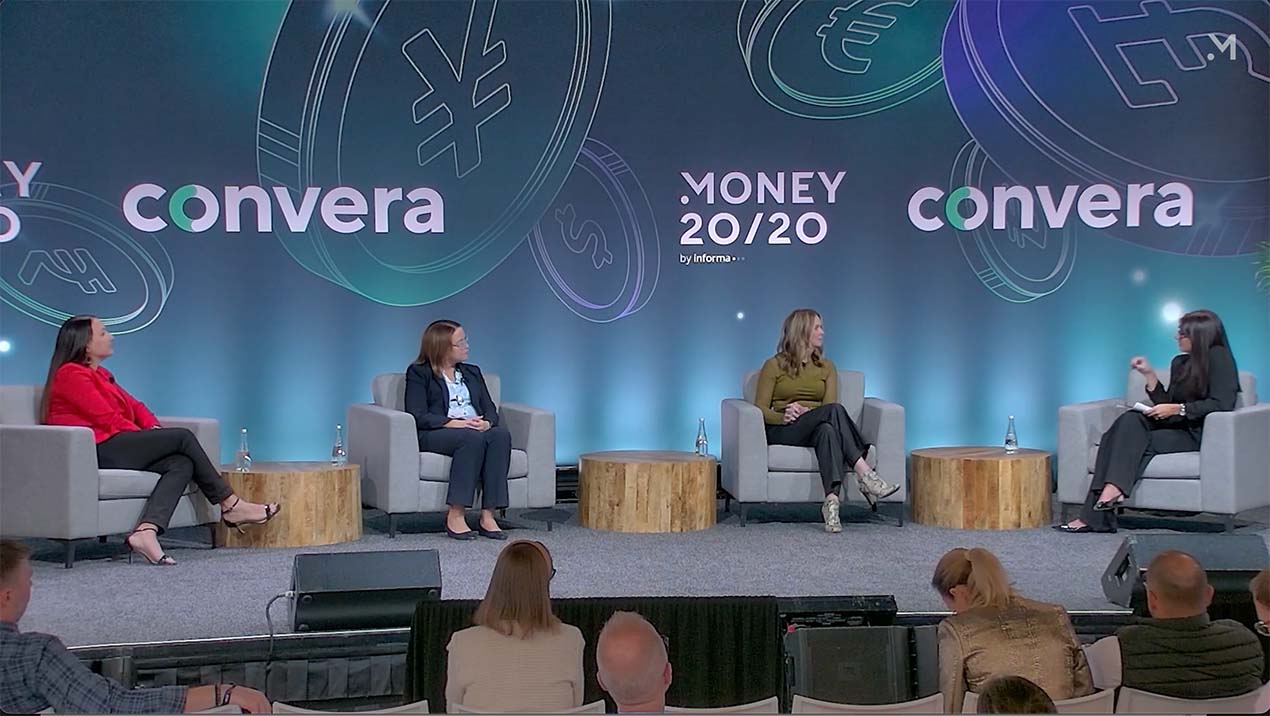
Meet Personetics at North America Banking & Fintech Events in 2026

Meet Personetics at LATAM Banking & Fintech Events in 2026

Meet Personetics at APAC Banking & Fintech Events in 2026

How to Monetize AI While Building Trust
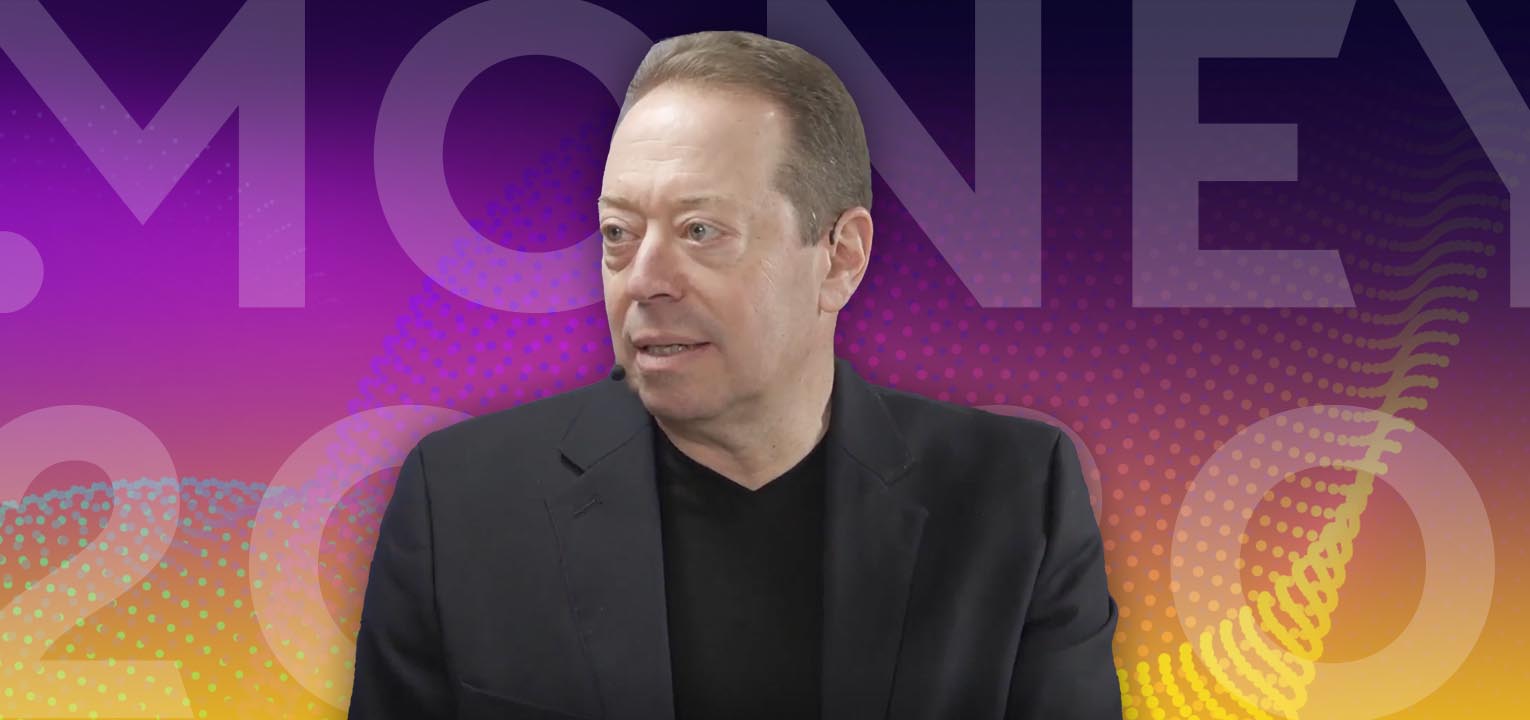
Cognitive Banking, Primacy, and the New AI Playbook for Banks: Insights from Money 20/20

How to Prevent Churn & Grow Wallet Share: Bank Primacy Playbook
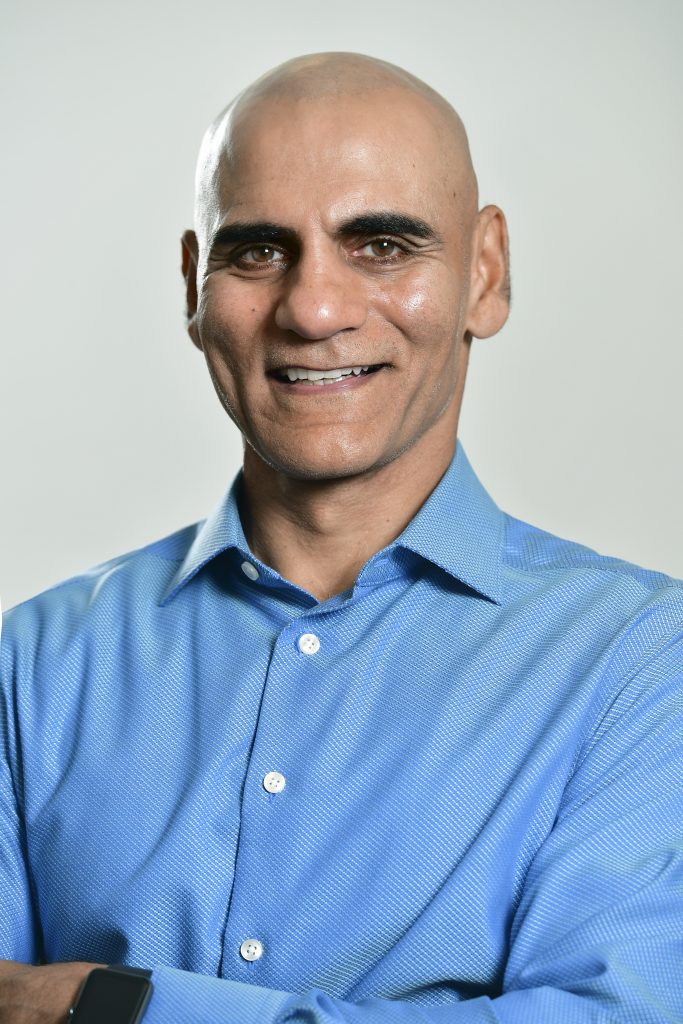
Jody Bhagat
President of Americas
Jody brings deep operating experience in financial services – managing direct channels, launching digital ventures, and leading digital transformation programs. He was previously a Partner at McKinsey & Company, where he helped financial institutions define and execute digital transformation programs to drive customer growth and operating efficiency. Jody also served in senior digital operating roles at U.S. Bank, Wells Fargo, and Providian. In these positions, he led digital sales and service functions and direct to consumer businesses to deliver organic growth and enhanced customer experience. Jody has an MBA from Northwestern University and a BS in Computer Engineering from The University of Michigan.









